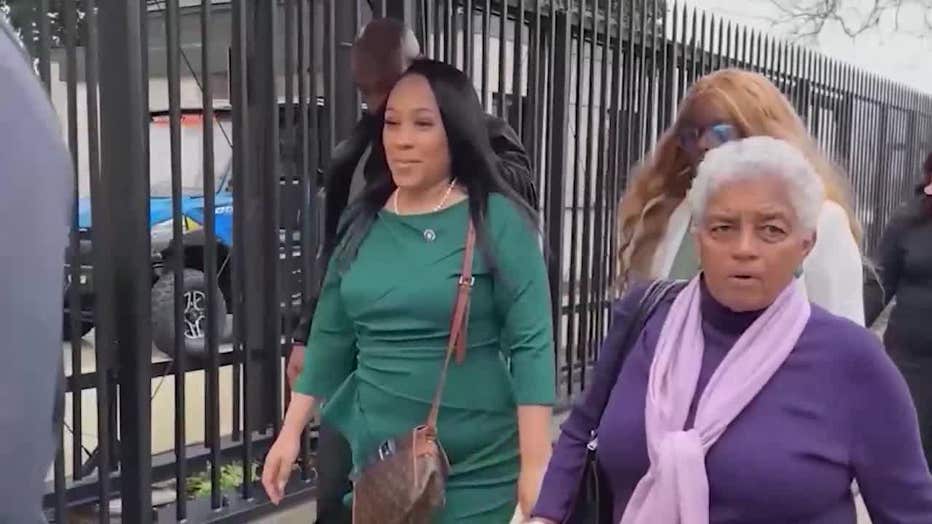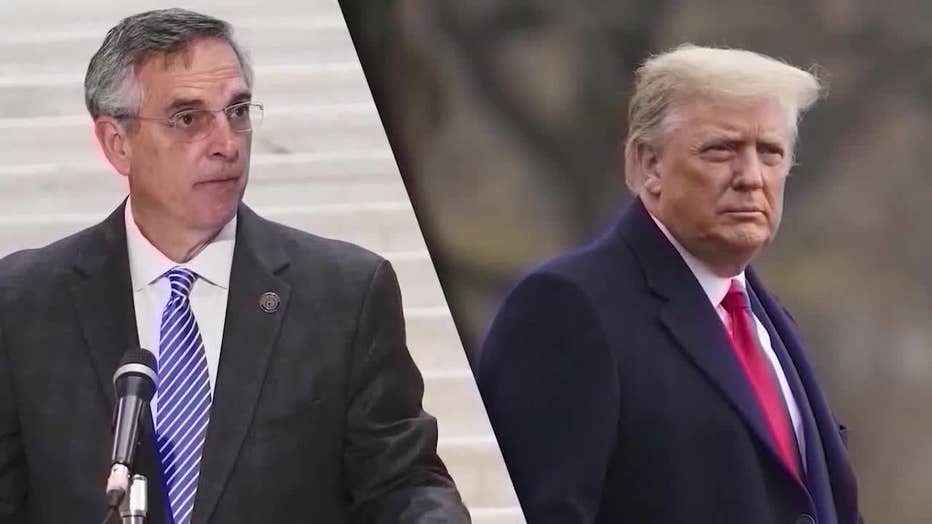What Supreme Court ruling means for Trump's Fulton County RICO case
Trump immunity ruling's impact in Georgia case
Big questions about how Monday’s landmark supreme court ruling over presidential immunity will impact the former President Donald Trump prosecution in Georgia.
Monday's landmark Supreme Court 6-3 ruling that former presidents are immune to the rule of law in some cases could have an impact on former President Trump's RICO indictment in Fulton County, but it remains to be seen specifically how.
"Unlike Trump’s alleged interactions with the Justice Department, this alleged conduct cannot be neatly categorized as falling within a particular presidential function," the opinion reads.
That could create more legal battles in a trial that has already ground to a standstill amid a motion to disqualify District Attorney Fani Willis for her romantic relationship with special prosecutor Nathan Wade.

Fulton County District Attorney Fani Willis
Emory University School of Law Prof. Jonathan Nash said the decision could change the defense's approach but isn't likely to completely sink the Georgia RICO case in which Trump is accused of conspiring to overturn the election results.
RELATED NEWS: Politicians react to SCOTUS ruling on Trump's immunity case
"Certainly, we’re at least going to get arguments about [this decision], whether there is immunity in the Georgia case," Nash said.
It comes down to whether Mr. Trump’s lawyers can prove he was acting in his official capacity as president when he tried to change the results in Georgia.
Will presidential immunity be extended to Trump?
"The court says there are certain things that lie within the core spear of presidential authority," Nash said.
But Nash said the immunity ends when actions are not officially associated with the presidency.
"Setting up a scheme of fake electors is not something the constitution directly calls for," he said.
And now, the fate of former president Trump’s legal troubles in Georgia, federally, and elsewhere hinges on what "official" means.
Trump Supreme Court immunity: What's next in Fulton County trial?
Fulton County Superior Court judge Scott McAfee must go through each of Mr. Trump's ten felony allegations and figure out if any are now void.
"Two of them could be substantially affected by today’s ruling from the Supreme Court," GSU law professor Anthony Michael Kreis tweeted. "But the most damning evidence against Trump is, I think, in a private capacity."
Those two counts he suggested were in danger were solicitation of high-ranking DOJ officials and solicitation of the Vice President.
But the question remains if Mr. Trump’s now infamous phone call with Secretary of State Brad Raffensperger pressuring him to flip the results could be considered part of his presidential duties.

Former President Donald J. Trump.
"Special council can’t point to the president‘s motive," Nash said of the federal case. "That’s not something that can come into play. The action is either going to be either official or not official."
That same metric will come into play in Georgia, as well as in his federal cases.
But that won't be figured out until a judge rules if DA Willis can stay on the case.
"That’s all baked in already," Nash said. "This decision is just going to give additional grounds for the president and, who knows, maybe other lead against to make additional arguments to have certain counts thrown out, claims of immunity."
A spokesperson for DA Willis’ office declined to comment following the ruling.

